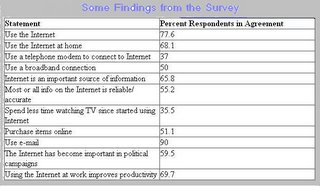benjamin of Plus Eight Star:
SMS has been a surprise for all carriers ("Japanese use mobile messaging because they have small fingers" - 2000), so were ringtones ("why download a ringtone when you have an MP3 player?" - 2001), logos (”Japanese like Hello Kitty, this won’t work in the West” - 2001), camera phones ("Who would want a camera with such low quality?" - 2003), mobile music downloads ("There is already iTunes!" - 2005).
Come to Japan, Korea and even China if you want to learn about the next surprise…
His recently post "3G World Congress in Hongkong " has more great ideas on Mobile Internet and 3G:)






